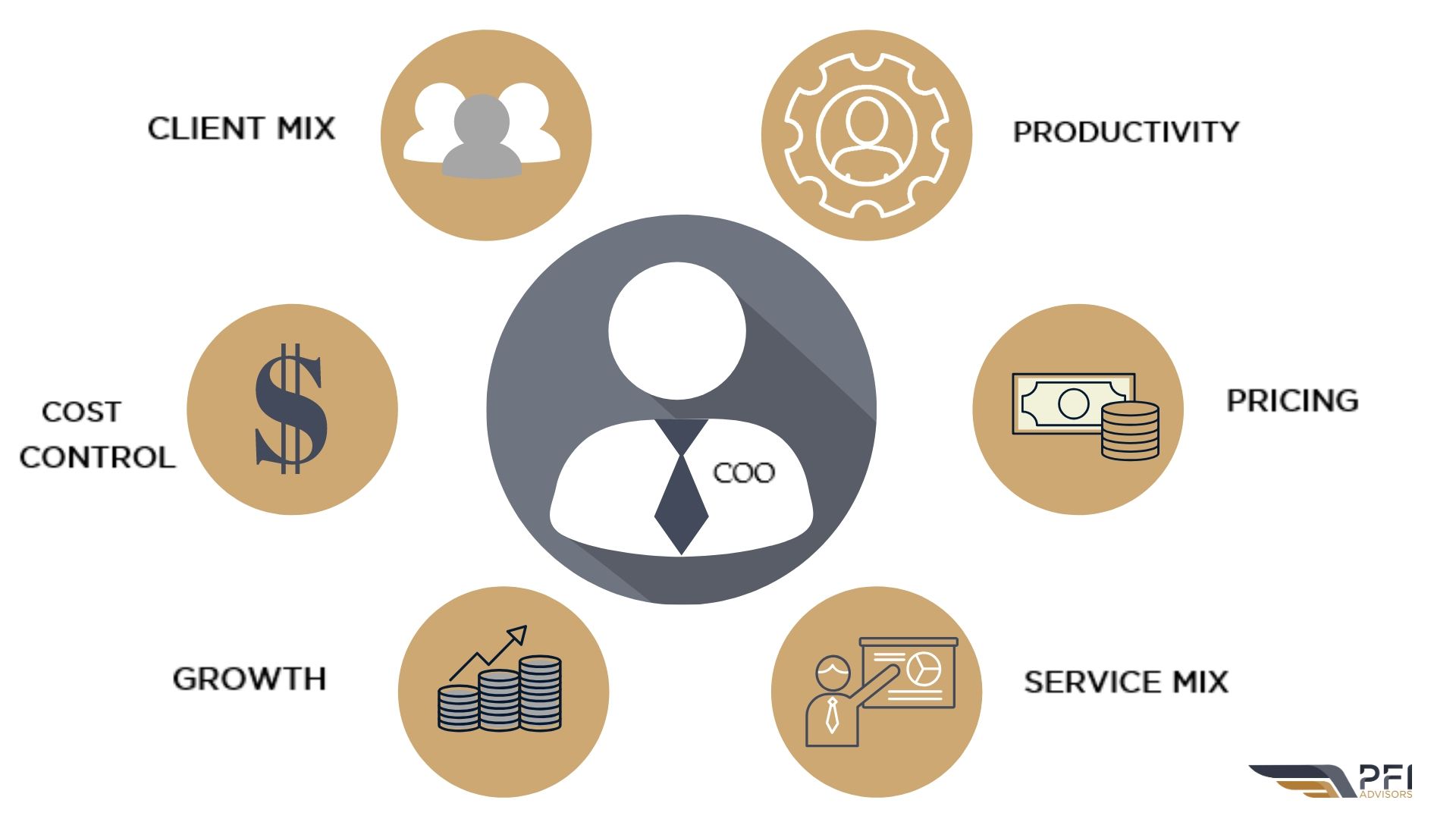I had the distinct pleasure of interviewing Mark Tibergien and Karen Novak of BNY Mellon Pershing, Advisor Solutions for Episode 12 of our podcast, The COO Roundtable. One of the main goals of the podcast is to promote the notion of professional management within the RIA industry and reverse the belief that professional managers are merely cost centers that add little to the revenue of the firm. PFI Advisors firmly believes that RIAs cannot achieve their organic or inorganic growth goals without proper professional management in place. I view Mark Tibergien as the Godfather of the professional management concept within the RIA industry, so I couldn’t pass up the opportunity to pose the question to him directly, “What advice do you have for COOs who look to combat the notion that only revenue-generating roles within the firm are valuable?” His response did not disappoint.
“The first thing that I would suggest is before accepting a job, the definition of success [for the COO] becomes clear. The second is that there has to be a clear reporting mechanism because I think that advisors who hire professional management tend to look at management as well as administrative staff as a cost to be controlled rather than an investment on which to get a return. And so, it really becomes incumbent upon the COO in this case to continually remind the shareholders of the business how value is demonstrated in each case.”
He then provided six concrete metrics that can be used to measure the success of both the Chief Operating Officer and the firm. Taking from Pershing’s benchmarking study published in conjunction with InvestmentNews, Mark cited Pricing, Client Mix, Service Mix, Productivity, Cost Control, and Growth as key elements of the business. It’s not a coincidence that the COO impacts all six of these core business elements.
Mark continued, “You have to take this holistic approach, much like you would with a financial planning client, that says, ‘If we can define the totality of success of this business and how I, as a COO, am moving it forward, then we have a common ground.’ If the CEO or the principals of the firm are not willing to agree to what those standards of excellence are, it’s going to be a fairly unfulfilling experience.”
Karen Novak added, “It’s really important [for the RIA] to understand [the value of] risk mitigation, the control environment of an advisory firm, and the leadership that a COO can bring to that. While it isn’t a revenue driver, it absolutely can save an expense component. It’s an indirect benefit that most CEOs and other professional managers are not thinking about. But without a strong control environment, there’s huge risk for that firm.”
Mark continued with Karen’s line of thinking around risk mitigation by adding, “Advisory firms [need] to be managing their balance sheet and their cash flow as well as their income statement. It will be important for them not to look at compliance as just something that they have to adhere to, but actually anticipate. These risk controls are fundamental to the success of any business. If we look at the companies that were dominant in the ‘70s in this business and why they disappeared, primarily, it was because of bad management and the failure to pay attention to what the headwinds will be as well as the tailwinds.”
Later in the discussion, Mark made this excellent point about the need for professional management within RIAs, “I think that as we look out over the next 10 years, as more advisory firms get into critical mass, more principals of firms are trying to make the decision whether they want to be primarily client-facing or do they want to be primarily business-facing. And it is a choice that people have to make if they want to do either one of them. I would also say that that the average advisory firm is growing at a slow organic rate, which typically means that advisory firms don’t have the physical capacity to grow… So, recognizing that as humans we have a physical limit to the amount of time we can spend on any one thing, the practical notion of operating leverage becomes key as they build this concept out.”
We will continue to do our best to promote the need for professional management and the benefits advisory firms will experience when client-facing advisors are relieved of the day-to-day administrative tasks associated with the running of the business, but no one says it better than the Godfather himself! It was a personal and professional thrill to have Mark and Karen on the podcast!

